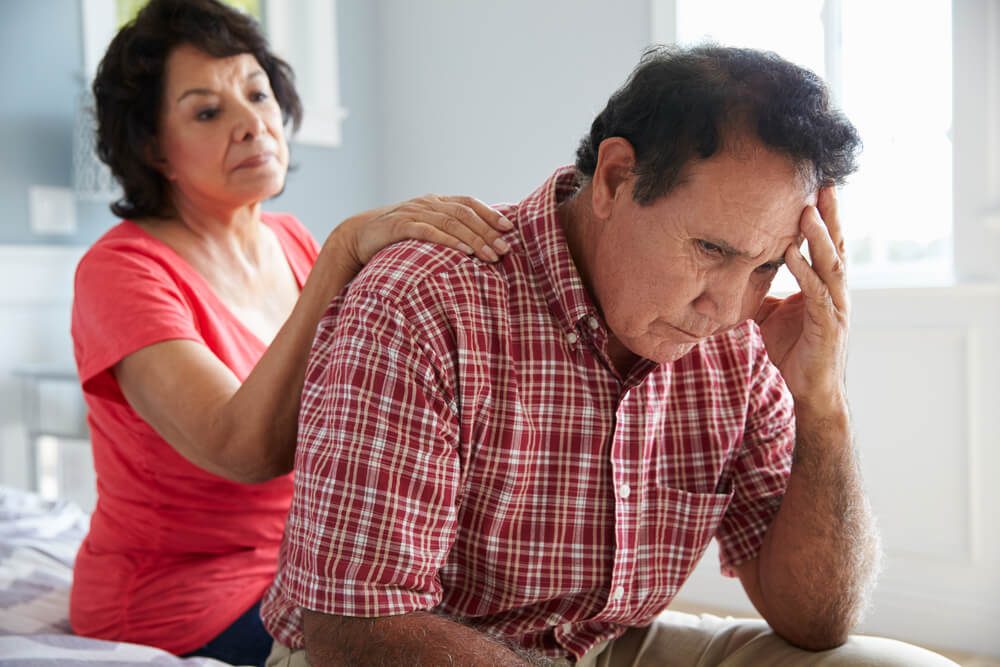Dan G. Blazer, MD, MPH, PhD, J.P. Gibbons Professor Emeritus of Psychiatry at the Duke School of Medicine and
Tracy A. Lustig, DPM, MPH, Senior Program Officer at the National Academies of Sciences, Engineering, and Medicine
Investigators show that individuals with hearing loss often resist engaging in social activities, which can lead to both social isolation and loneliness. While the data from such studies can be cited, this association becomes more meaningful if we consider it from a personal perspective.
 For example, John, an elderly man with hearing impairment, becomes more hesitant to attend a civic group function in which he has been an active member for decades. With the encouragement of his wife, he attends a weekly meeting. While standing and “socializing” he picks up only bits and pieces of the discussion and therefore does not enter into the conversation. During the formal presentation he hears virtually nothing said. His old friends are cordial and try to engage him in a discussion about the talk. He returns their salutations with nods and generalities about how much he enjoyed the evening. Returning home, he tells his wife he will not be attending in the future. He also avoids informal meetings, such as a breakfast group he attended for years. Buddies call by phone, yet he again has difficulty hearing them and cuts most of these conversations short. Gradually withdrawing, he complains that he is lonely yet uninterested in anything outside. Reading and watching TV (with aids to assist is hearing) occupy most of his time, yet are not fulfilling. He spends increasing hours simply sitting and staring out the window. His hearing impairment has rendered him a prisoner in his own home.
For example, John, an elderly man with hearing impairment, becomes more hesitant to attend a civic group function in which he has been an active member for decades. With the encouragement of his wife, he attends a weekly meeting. While standing and “socializing” he picks up only bits and pieces of the discussion and therefore does not enter into the conversation. During the formal presentation he hears virtually nothing said. His old friends are cordial and try to engage him in a discussion about the talk. He returns their salutations with nods and generalities about how much he enjoyed the evening. Returning home, he tells his wife he will not be attending in the future. He also avoids informal meetings, such as a breakfast group he attended for years. Buddies call by phone, yet he again has difficulty hearing them and cuts most of these conversations short. Gradually withdrawing, he complains that he is lonely yet uninterested in anything outside. Reading and watching TV (with aids to assist is hearing) occupy most of his time, yet are not fulfilling. He spends increasing hours simply sitting and staring out the window. His hearing impairment has rendered him a prisoner in his own home.
A 2016 study by the National Academies of Sciences, Engineering, and Medicine found that hearing loss “can have significant effects on one’s communication abilities, quality of life, social participation, and health.” Furthermore, an Academies report just released in February 2020 (focused on older adults) noted that social isolation and loneliness are serious public health risks that are associated with increased likelihood of dementia, heart disease, and even early death. The report committee recommended that health care providers periodically assess older adults for social isolation and loneliness, and try to determine the underlying causes of that isolation or loneliness. In particular, they stated “a physician may recommend hearing aids to assist an individual with impaired hearing; as a result, the individual may find it easier to interact in social environments and make connections with others, thereby reducing social isolation and loneliness
In 2016, the Academies found that “many people with hearing loss do not seek or receive hearing health care.” Given the evidence of the impact of social isolation and loneliness, discussing hearing loss with your health care provider is not simply a matter of improving your hearing; rather, it is critical to your overall health.